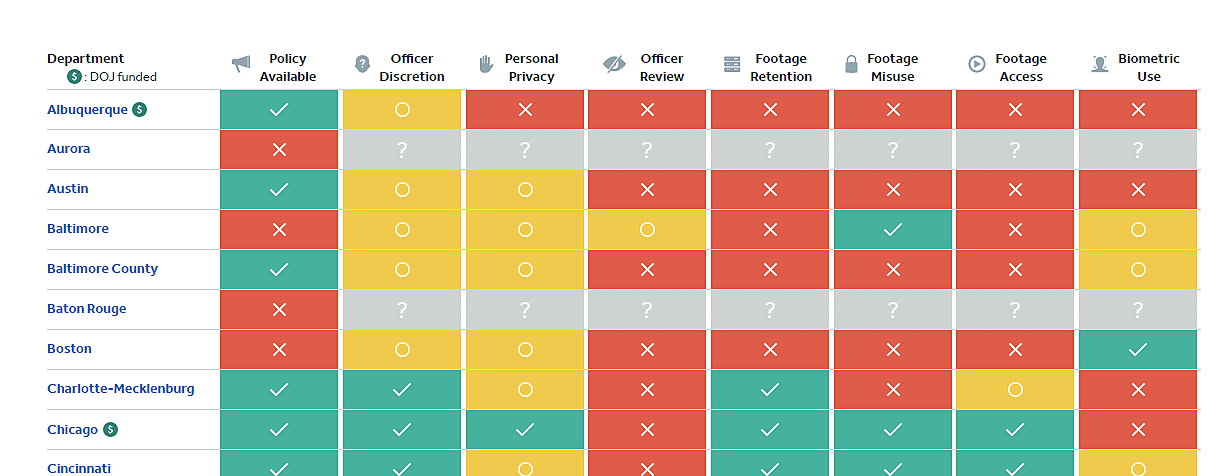An updated body camera scorecard highlights a disturbing state of affairs in body camera policy that lawmakers should strongly resist. A majority of the body camera policies examined by Upturn and the Leadership Conference on Civil and Human Rights received the lowest possible score when it came to officer review of footage and citizens alleging misconduct having access to footage, meaning that the departments were either silent on the issues or have policies in place that are contrary to the civil rights principles outlined in the scorecard. Such policies do not promote transparency and accountability and serve as a reminder that body cameras can only play a valuable role in criminal justice reform if they’re governed by the right policies.
Upturn and the Leadership Conference on Civil and Human Rights looked at the body camera policies in fifty departments, including all departments in major cities that have either outfitted their officers with body cameras or will do so in the near future. Other departments that were scored include departments that received at least $500,000 in body camera grants from the Department of Justice as well as Baton Rouge Police Department and the Ferguson Police Department.
Each department was given one of four possible scores in eight categories (personal privacy, officer review, biometric use, footage retention, etc.). Departments were either awarded a red ex, a yellow circle, or a green check, depending on how consistent their body camera policy is with the civil rights principles outlined in the scorecard, with a red ex indicating inconsistency or silence and a green check indicating consistency. A fourth score, the “?”, was awarded to policies that were not publicly available.
Below are the scoring criteria for officer review and footage access for citizens filing complaints:
Forty of the fifty departments received the lowest possible score for “Officer Review,” and not one received a green check.
When it comes to access to footage the scores are marginally better, with four departments being awarded green checks. However, thirty-nine of departments in the “Footage Access” category received the lowest score.
Thirty-five (70%) of the departments received the lowest possible score for both officer review and access to footage. Among these departments are some of the America’s largest, including the Los Angeles Police Department, the New York Police Department, the Houston Police Department, and the Philadelphia Police Department.
Regrettably, the federal government has sent body camera funds to departments with the lowest-scoring officer review and footage access policies. Eleven of the thirty-five departments that received a red ex for officer review and footage access were awarded at least $500,000 in body camera grants by the Department of Justice.
Body cameras can only be tools for increased transparency and accountability in law enforcement with the right policies in place. Unfortunately, Upturn and the Leadership Conference on Civil and Human Rights’ scorecard reveals not only that many departments have poor accountability and transparency policies but also that the Department of Justice does not review these policies as disqualifying when it comes to body camera grants.



